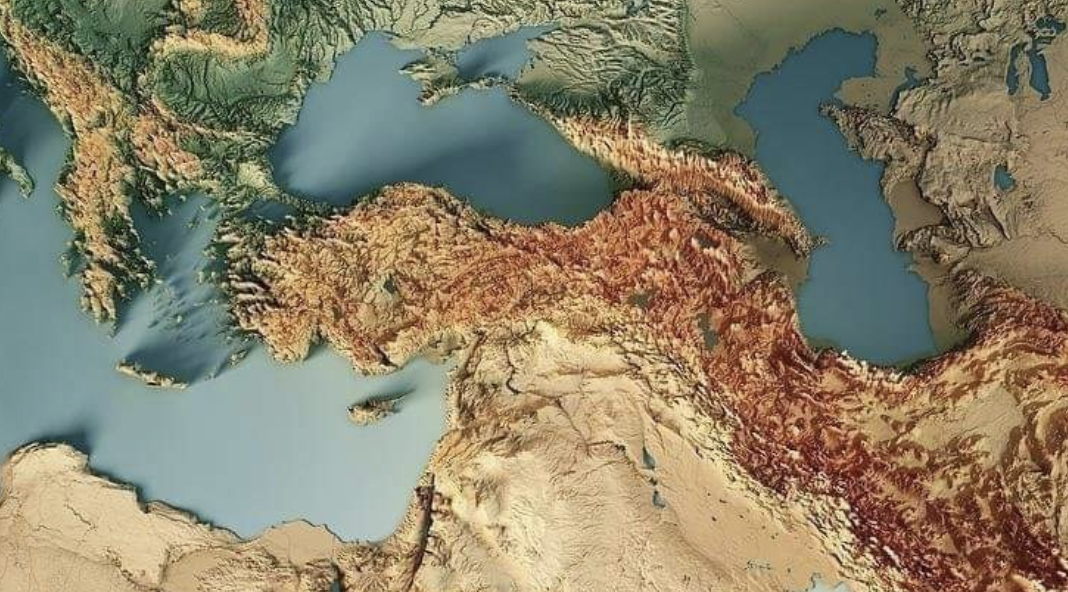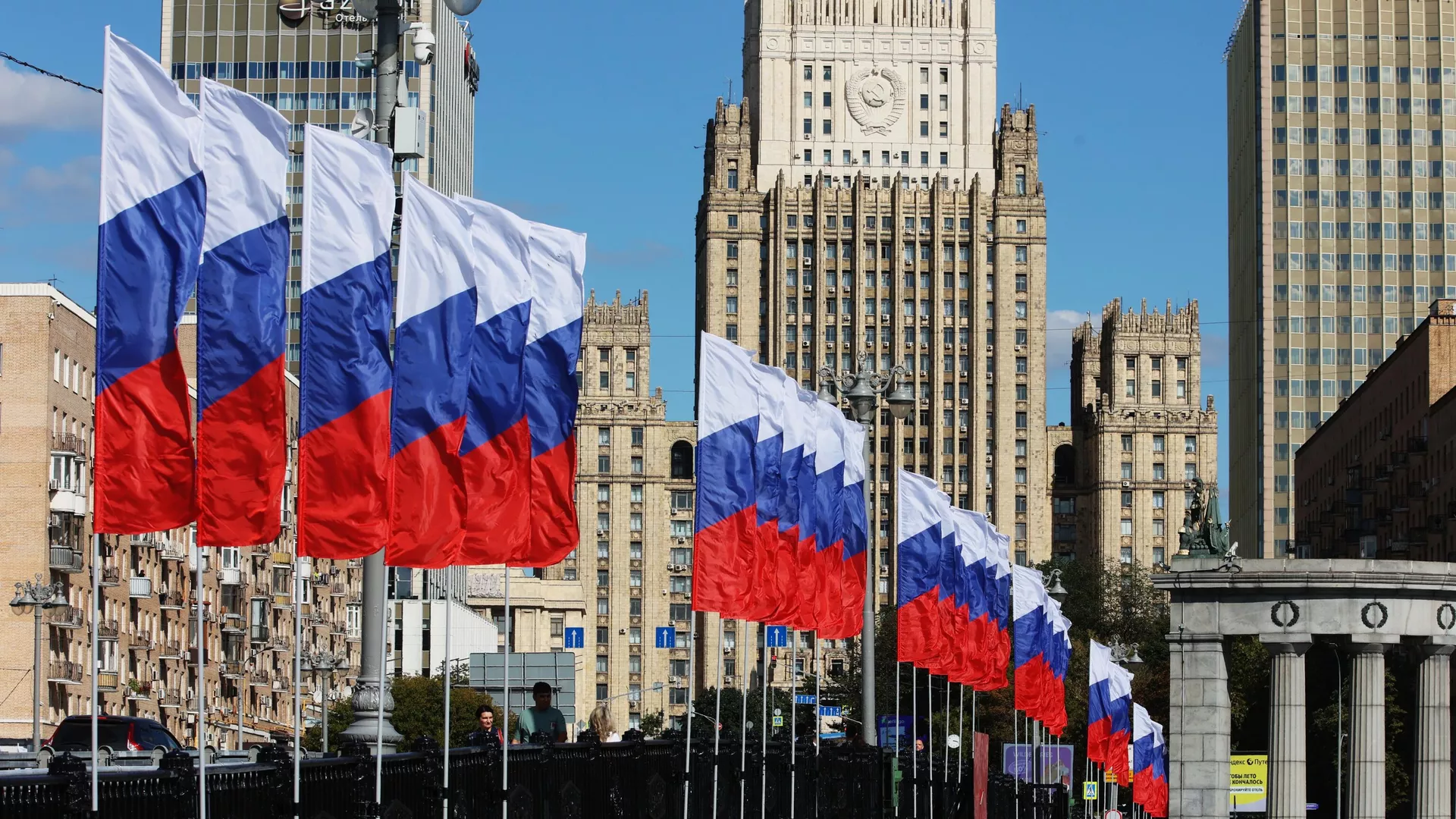The success of drilling in the Black Sea, which resulted in the greatest natural gas reserve find in Turkey’s history, has drew the attention of the world’s most knowledgeable reserve appraisal firms to the region. Naturally, Turkey stands out for hydrocarbon pipelines in terms of inter-regional supplies, but it is also on its approach to playing an essential role in defining today’s geopolitical environment, particularly in the natural gas industry. “Who holds us back?” one could ask.
Foreign powers are indeed jealous of Turkey.
Why?
This is due to Turkey’s ability to position itself as a crucial transit hub in the centennial of the Republic’s formation, with interregional pipelines delivering hydrocarbons from the Caspian area to the Mediterranean port of Ceyhan (oil) and gas to the European grid via the Dardanelles.
Russian gas is also sent to southern European markets via the TurkStream pipeline, which runs across the Turkish Black Sea. Russia and Turkey also built the Blue Stream pipeline in 1997, which began operating in early 2003 and distributes Russian gas to the Turkish market.
Political ecology in the Ankara – Moscow – Tehran triangle…
Political ecology can be defined as the politicization of environmental problems arising from natural environment-human interaction. Therefore, political ecology is the study of the relationship between political, economic and social factors and environmental problems and changes. In order to analyze the geopolitics of Russia and the Black Sea basin, it is necessary to know the political ecology of the Caspian Basin.
At the same time, we are talking about a Russia that is increasingly intervening militarily and even as a mediator and arbitrator in regional conflict resolution processes, including in Central Asia, Transcaucasia and other parts of the world. Therefore, it is not easy to analyze the geopolitical directions of Russia, which opposes a multipolar world order and American dominance on a global scale.
According to Western strategists, the actions of Russia, Turkey and Iran are largely creating a new balance of power in the South Caucasus. The activities of the three powers historically present in the region theoretically cut it off from falling victim to a Russia-West conflict.
At the moment, however, the interaction of the three regional players is more likely to escalate tensions than de-escalate them. Or such a misleading image is being given. The United States and the European Union are operating in the region in the name of the Catholic Church, Protestant pastors, Jehovah’s Witnesses, so-called humanitarian organizations, journalists, diplomats or energy company employees.
Today, Europe is mainly dependent on Russia for its gas supplies. Naturally, Russia will remain the main gas supplier to old continental Europe in the future, despite the best efforts of the United States.
In a global environment where energy is gaining more and more importance, the resources of the Caspian Sea are becoming more valuable every day. The Caspian Basin continues to attract the attention of global and regional powers with its oil and natural gas resources.
Global actors seeking to be influential in the region want to extract energy resources, transport them to world markets and control energy. While the Caspian Sea was under the control of Russia and Iran, with the dissolution of the USSR, it was opened to the joint use of five states and power struggles in the Caspian began. The world’s growing demand for energy resources led the Caspian Basin countries to resolve the legal status of the sea through negotiations. And they succeeded. Today, at least for the time being, the Caspian Sea enjoys a climate of peace.
The total proven oil reserves of the Caspian Basin countries of Azerbaijan, Kazakhstan, Turkmenistan, Uzbekistan and Tajikistan are around 48 billion barrels. This figure shows that Caspian Basin oil is not of vital importance for the world energy sector.
The US and the EU have written off Ukraine!…
EU countries are facing big problems. Their main problems are undoubtedly security and energy supply. But fear is not a panacea. All sessions of the EU Leaders’ Summit, organized in Brussels with the participation of the heads of state or government of the 27 EU member states, have been held. Leaders discussed how to strengthen the EU’s security and defense in the face of global instability, strategic competition and security threats.
EU leaders postponed the debate on Turkey until March 2024. Hungary vetoed negotiations on an additional €50 billion in financial support for Ukraine. The high-stakes EU summit in December 2023 resulted in accession negotiations for Ukraine and Moldova and candidate status for Georgia.
The summit has three main conclusions!…
First, while enlargement is a geostrategic tool, the EU institutions and member states have not yet developed the necessary techniques to put it into practice without jeopardizing normative coherence.
Second, Europe’s unity remains fragile and vulnerable to both internal and external challenges.
Third, the EU can no longer ignore the problem of rogue member states and must deal with it as a matter of urgency and principle.
In the face of massive US and international protests against the US/Israeli genocide in Gaza and the collapse of public support for Washington’s proxy war against Russia in Ukraine, Democrats and Republicans came together to pass the National Defense Authorization Act (NDAA).
Next year, military spending will total $883.7 billion, an increase of $145 billion, or 20 percent, since 2020. Of this figure, $841.4 billion goes to the Department of Defense, $32.4 billion to “national security” programs within the Department of Energy, and $438 million to defense-related activities. In other words, Americans are in over their heads.
The same is partly true for Russia. This is because Russia’s war with NATO-backed Ukraine is estimated to have reached $40 billion in military costs by September 2022. For the full year 2022, GDP losses amounted to between $81 billion and $104 billion, and the loss of financial capital for the full year amounted to $322 billion. Direct military expenditures could reach almost $132 billion by 2024.
Valor lives a thousand lives and opportunity falls one!…
Great power status in terms of influence in different parts of the world is determined not by the desire to retain allies at all costs, but by the ability to return to countries that once seemed to have “disappeared” as an asset of national foreign policy.
According to Russian experts, the situation in the Transcaucasus should not be viewed as a final event. The future fate of Azerbaijan, where substantial oil revenues have not improved the lives of ordinary people, is completely uncertain. When the poor masses of Azerbaijan realize that the Karabakh victory is not enough to feed them, the Aliyev family regime may be gone.
Already facing severe economic difficulties, it is almost impossible to predict what Turkey’s future will be after Erdoğan.
They note that Armenia’s “Velvet Revolution” took Western powers by surprise because the previous government in Yerevan was heavily dependent on Russia due to its lack of democratic legitimacy, while in Azerbaijan, some policymakers advocate closer ties with Russia, while there are doubts about Moscow’s capacity to provide continued support to Baku on key issues such as the ongoing Karabakh conflict.
Who specifies it?
Russian experts.
Let me make a historical note right here and now. According to the parameters determined by Russian analysts, Turkey’s ability and potential to return to its previous borders is at least as great as that of the Russian Federation.
Russia and the energy fields in the Caspian Sea are extremely important for the EU!
In the long run, the Russian economy and the standard of living of its people are likely to decline in a deadlocked war. The main factor sustaining the Russian economy is export revenue from oil and gas sales. Russia has suffered direct military costs, gross domestic product losses and financial capital destruction, and its citizens are facing a decline in their standard of living. Russia’s Lukoil and Gazpromneft oil fields and projects are under threat.
Did the Americans roast chickpeas so that their fingernails burned?
Or, to put it differently, did the cattlemen count money for the seeds of Europeans?
What do you mean?
The Americans themselves think and say that the peace and stability of Western Europe should not be a vital US interest. The Americans are pursuing their own interests. That is why Uncle Sam is doing everything he can to reduce the dependence of his so-called ally Europe on Russian energy.
NATO’s energy security center of excellence is in Lithuania. Also, the NATO Center of Excellence for Strategic Communications, which focuses mainly on disinformation, is in Latvia.
Estonia hosts NATO’s cyber security center. EU member states perceive the Russian threat with varying degrees of seriousness.
But Europe’s security is becoming increasingly precarious as the war support for Ukraine exposes weaknesses in European defense – the result of years of neglect and under-spending.
Meanwhile, their arms control apparatus has been almost completely eroded, so they are not as eager as they were at the beginning of the war to help the anti-people thieving regime in Kiev.
Caspian Basin and the Caspian trans-Caspian Middle Corridor…
Brzezinski states that Azerbaijan is a key geopolitical country. Azerbaijan has huge energy resources and plays a key geopolitical role. It is the gateway to the riches of the Caspian Sea basin and Central Asia. If Azerbaijan is completely subject to Moscow’s control, the independence of the Central Asian states becomes practically meaningless.
With the changing conditions in the energy market, Turkey’s geostrategic position has once again come to the fore, just as it did during the Cold War, as the transportation of the vast Caspian Basin hydrocarbon resources to Western markets through secure and diverse routes has become vital.
Yulia Sergeyevna Kudryashova notes that the EU strategy in this regard is to create conditions for active communication along the Central Asia – South Caucasus – Turkey – EU route. Turkey’s importance as a strategic partner of the EU will increase due to Europe’s desire for access to new markets and sources of raw materials in Central Asia.
Caspian oil and access to local markets are essential for the growth of the European economy. Turkey, as a democratic state with close political, cultural and trade ties with the countries with the world’s largest natural gas and oil reserves, will provide the EU with a stable supply of energy resources. Europe’s influence over Turkey can thus be projected to the energy-rich Caspian Sea littoral. This is what Yulia Sergeyevna Kudryashova was saying, but the ancient Turkish state was neither a subcontractor of the cruel European colonialists nor a Trojan horse?
On the other hand, Moscow and Ankara play an important role in almost all of each other’s energy plans and geopolitical calculations, mutually and by agreement. Turkey ranks third in natural gas purchases from Russia, behind Germany and Italy, while the share of energy resources in Russian exports to this country reaches 70 percent.
The strategic importance of the Turkish-Russian rapprochement has undoubtedly increased as energy has come to the forefront of both countries’ domestic and regional calculations, especially in their relations with Europe. At the same time, Moscow is receptive to Turkey’s demands for lower gas prices from Russia and the right to re-export it to Europe.
These steps have already been taken.
Caspian transit transportation options…
Supporting many initiatives for the development of regional transportation corridors within the framework of its position between continents and regions, Turkey aims to develop trade, economic and investment relations as well as political and cultural relations between the regions in which it is at the center and beyond.
The Caspian Trans-Caspian Middle Corridor initiative The Caspian Trans-Caspian East-West Middle Corridor (Middle Corridor), which starts from Turkey to the Caucasus region, then across the Caspian Sea to Central Asia and the PRC via Turkmenistan and Kazakhstan, constitutes one of the most important components of the project to revitalize the historic Silk Road.
Another important effort towards the activation of Caspian trans-Caspian transport options is the agreement between Kazakhstan, Azerbaijan and Georgia on “Establishment of the Coordination Committee for the Development of the Trans-Caspian International Transport Route” signed on November 7, 2013.
Subsequently, within the framework of the aforementioned agreement to which China became a party, the first test run on the Middle Corridor was carried out on July 28, 2015, and the container train (Nomad Express) departing from Western China successfully reached Baku via Aktau Port 6 days later. With the launch of the Baku-Tbilisi-Kars (BTK) Railway, an important pillar of the Central Corridor was completed.
The need to diversify sources and routes for energy security has become more important. This situation brought the Caspian basin resources to the forefront.
Geographical locations, human and natural resources show how powerful we can be when we come together.
Despite all global and regional obstacles, Turkey has been transporting Azerbaijani natural gas to Europe via the South Caucasus pipeline and TANAP. Joint steps have also been taken on Turkmenistan natural gas to the benefit of the three countries.
To the Caspian Sea, may the evil eye not come!…
Russia’s large-scale military campaign against NATO-backed Ukraine in February 2022 has refocused attention on the geopolitical importance of the Black Sea. What could be the secret of Ukraine’s inability to stop Russia despite NATO’s logistical assistance?
I will tell you that what the North Atlantic Treaty Organization has overlooked is Russia’s use of the Caspian Sea (often in coordination with Iran) to advance its war aims in Ukraine.
For Moscow, the Caspian Sea plays a key role in the projection of Russia’s power in a way that Western capitals fail to understand. This role has direct implications for NATO’s Black Sea security for three reasons.
The ability to move warships from the Caspian Sea to the Black Sea (and vice versa) allows Russia to project power in an important region of the world, while offering Russian policymakers flexibility and options in times of conflict in the wider region.
The Caspian Sea is a strategic, if often overlooked, region for the transatlantic community. Russia sees the Caspian and the Black Sea as a single geopolitical space. For Moscow, the Caspian Sea plays a powerful role in the projection of Russia’s power in a way that Western capitals fail to understand.
This role has direct implications for NATO’s Black Sea security for several reasons. One of the two channels linking the Caspian Sea to the outside world is the Volga-Don Canal, which connects it to the Black Sea via the Sea of Azov. This canal is 63 miles long and, as its name suggests, connects the Don and Volga Rivers. Its primary purpose is commercial transportation.
But in spring and summer, when the canal is not frozen, Russia uses it to transport warships and military supplies between the Caspian Sea and the Black Sea. Ships from Russia’s Caspian Flotilla have played a direct role in supporting Russia’s invasion of Ukraine since 2022.
With Turkey closing the Turkish Straits into the Black Sea, Russia’s Caspian Flotilla is the only option to reinforce its Black Sea Fleet. Realizing the importance of the canal, Moscow recently announced a $1 billion investment in modernizing the waterway.
This investment will not only make the canal more reliable for the transportation of military supplies and equipment between the Caspian and Black Seas, but will also increase the Russian Federation’s trade opportunities with Iran.
The use of the Caspian Sea for missile launches from the sea provides Russia with strategic depth and a degree of protection not found in more contested regions such as the Eastern Mediterranean or the Black Sea. Using naval assets in the Caspian to strike targets in Ukraine and Syria helps Moscow with both military objectives and Caspian geopolitics. These missile strikes send a strong signal to other Caspian states that Russia is the dominant military power in the region.
Iran and Russia share many goals in the Caspian region.
Russian-Iranian cooperation in the Caspian threatens the wider region, including NATO and its partners. Iran has delivered drones used by Russia against Ukraine either via the Caspian Sea and the Volga-Don Canal to occupied Crimea or via an air corridor over the sea.
The Russian and Iranian navies are also conducting joint military exercises in the Caspian Sea. Experts have long suspected Iran of using the Caspian Sea to transport oil to Russia as a way to circumvent economic sanctions.
The Americans say;
With regard to the maritime situation in the Caspian, a key strategic objective of the United States should be to help regional partners strike a balance among the five Caspian powers so that no single country (Iran or Russia) has an overwhelming maritime power in the region.
It is unrealistic to believe that a single Caspian state can match Russia’s firepower. This should not be the goal. Instead, US policymakers should seek to help friendly countries in the region mitigate, balance and deter any possible malicious(!) activity by Russia or Iran.
Ultimately, this approach will bring stability to the region in line with US interests. With a large part of Russia’s Caspian Flotilla dedicated to operations in the Black Sea and the Sea of Azov, this goal has never been more achievable.
At the tactical level, the main U.S. objective in the Caspian region should be to help friendly countries secure their maritime borders, protect vital energy infrastructure, stem the flow of terrorists, prevent terrorist attacks, ensure the free flow of trade, and disrupt energy transfers.
The United States should work bilaterally and, where appropriate, through NATO to enhance the security and military capabilities of its partners in the region. In particular, the United States should work with Turkey to enhance the security and military capabilities of its partners in the region. The United States should seek to deepen defense and security ties with some countries, such as Turkmenistan, but should not do so overtly or publicly.
But despite Russia’s efforts to slow down Georgia’s integration into the Euro-Atlantic community, Georgia has made good progress. It has close ties with NATO, is an official candidate country and was recently granted visa-free travel by the EU. The Americans are looking for ways to give Russia a headache in the Balkans.
They are creating tensions in Serbia, Croatia and Kosovo.
Not enough, they are stirring up trouble in Macedonia. Or they want to make the Croats and Serbs in Bosnia-Herzegovina fight again.
They threaten to reignite divisions that have been simmering since 1995 and the Dayton Peace Agreement.
There is a secret agreement between Iran, Russia and Turkey in the Caspian Basin.
The European Union and NATO not only want to penetrate the geopolitics of the Caspian Basin, but also to incorporate it into their colonial network. Turkey is a common ally for both sides in this process.
How is this going to work?
resources
https://vz.ru/opinions/2023/9/25/1231913.html
https://mgimo.ru/about/news/experts/145841/
https://www.rand.org/pubs/research_reports/RRA2421-1.html
https://www.wsws.org/en/articles/2023/12/16/pqnx-d16.
Специфика военно-политического присутствия Ирана, России и Турции на Южном Кавказе
https://www.mfa.gov.tr/turkiye_nin-cok-tarafli-ulastirma-politikasi.tr.mfa
https://russiancouncil.ru/analytics-and-comments/comments/rossiya-vsegda-vozvrashchaetsya/
https://www.hudson.org/security-alliances/natos-black-sea-frontier-southern-shore-caspian-sea
https://www.chathamhouse.org/2023/12/orbans-ukraine-gamble-blow-eus-geopolitical-ambitions
https://www.mei.edu/publications/turkey-new-emerging-gas-player-resources-and-infrastructure
https://www.heritage.org/europe/commentary/the-balkans-will-be-america-and-russias-next-virtual-battlefield





